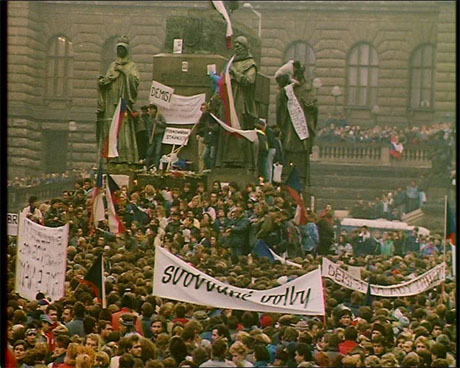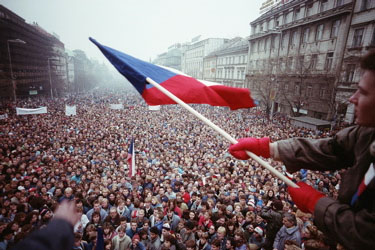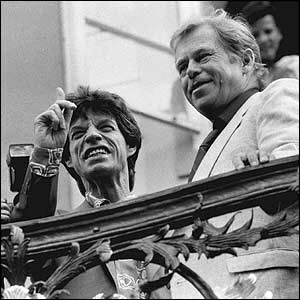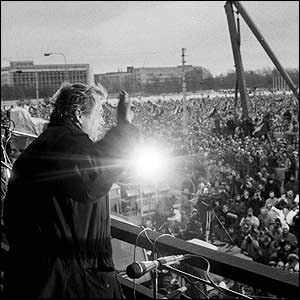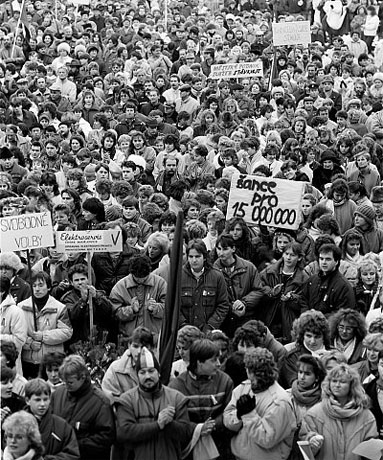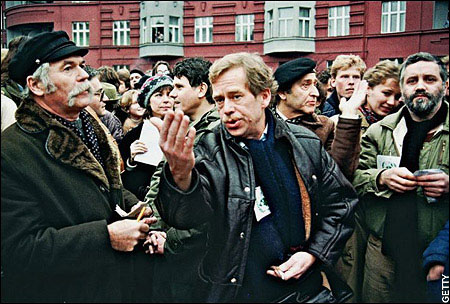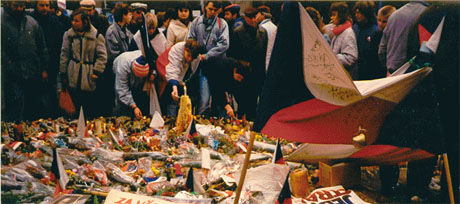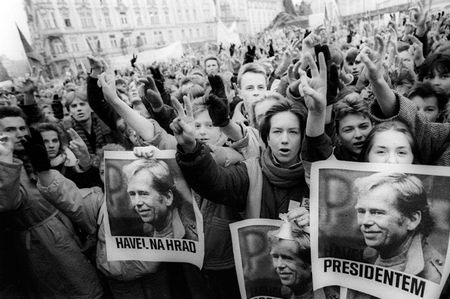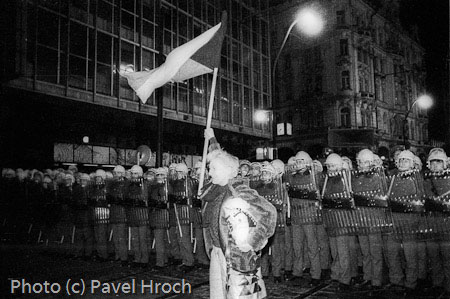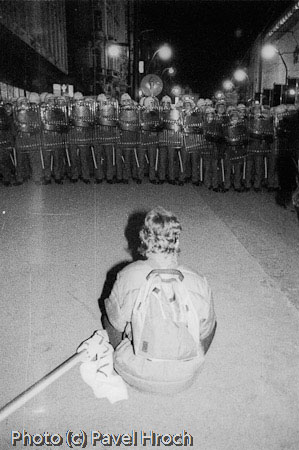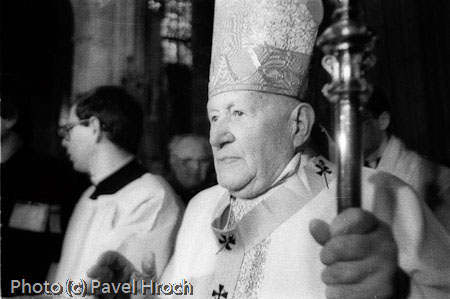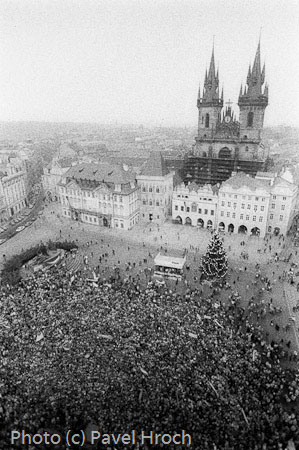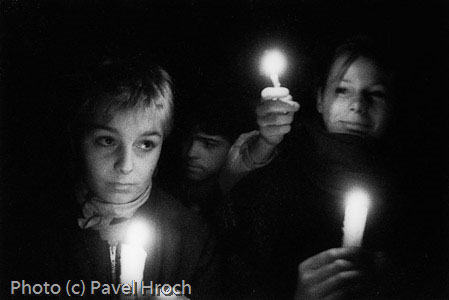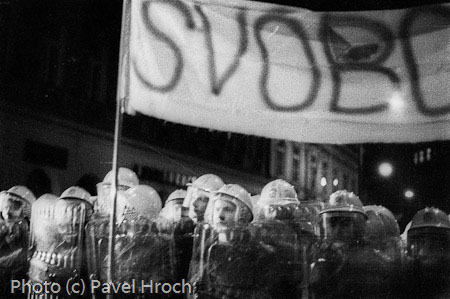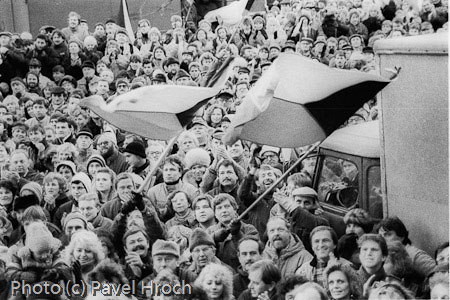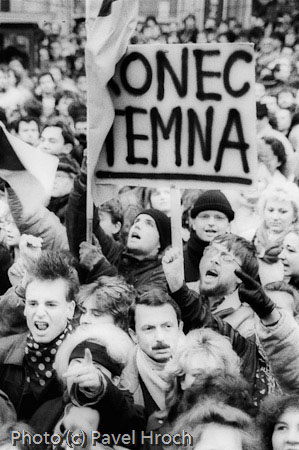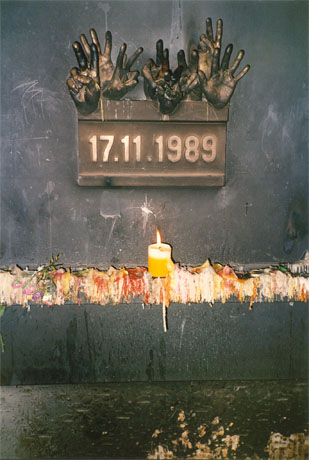How dictatorships collapse: 20 years of Velvet Revolution in Czech Republic and Slovakia (Photo, video)
28- 17.11.2009, 11:40
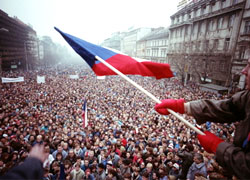
November 17 is Struggle for Freedom and Democracy Day in Czech Republic and Slovakia.
On this day peoples of these countries recall about the tragic events of 1939 and mark the anniversary of the Velvet Revolution if 1989.
On October 28, 1939 Prague students staged a demonstration dedicated to the anniversary of foundation of the Czech and Slovak state. By that time Czechoslovakia was occupied by Nazi Germany and existed as a puppet state the Protectorate of Bohemia and Moravia, so the demonstration by students was quashed by Gestapo, “Ekho Moskvy” radio station informs.
Death of one of the participants of the demonstration caused new protest rallies which finished on November 17 by executions and mass arrests of Czechs and Slovaks, as well as higher educational institutions.
50 years after, on November 17, 1989 student demonstrations, this time against Communist regime, started. As informed by “European Belarus” website, first the student protest was rather small, but as the column approached the centre of Prague, more people joined the column, and it had up to 50,000 protesters. Demonstrators demanded first of all free elections, resignation of the General Secretary of the Communist party of Czechoslovakia Miloš Jakeš, end to the monopoly of the Communist party of Czechoslovakia.
Response of the coalition was extremely brutal. At about 8 p.m. police cordons blocked about 2,000 persons in National Boulevard not far from Wenceslas Square, and blocked the way to the rest of the procession. Demonstrators continued to behave orderly, some of them chanted: “Your work is to protect us”, “We are unarmed”.
The demonstration was brutally dispersed. According to the Commission of the Federal Assembly of the Czechoslovakia Federal Republic as of May 9, 1990, about 500 persons were injured on that day in National Boulevard. Police actions were so cruel that rumours about dead appeared immediately.
After that the situation developed rapidly. As a sign of solidarity with battered young people, students announced a strike and refused to go top studies. Professors, theatre actors, intellectuals joined them. Every evening millions of candles were lit in dark windows and on the streets. On November 19 in Dramaturgy club the Civic Forum was created by workers of culture, representatives of independent initiatives, students and citizens. Thus, the political opposition united. An organisation that represented oppositional forces in the dialogue with the government was established.
Students were catalyst of changes undoubtedly. People of an elder age remembered very well that the previous attempt of democratization in 1968 finished by invasion of Soviet tanks to the country, and met demonstrations with mistrust. However, enthusiasm of protesters was so convincing that gradually all strata of society joined the protests. In Prague, and later in other cities of Czechoslovakia mass rallies of citizens were held on that week. They expressed dissatisfaction over the government, demanded reforms and acceleration of democratization process.
On November 25 and 26 about 700,000 protesters gathered in Prague. In their hands they had candles of solidarity, portraits of Alexander Dubček and Jan Palach, victims of the suppression of the Prague Spring in 1968. On November 27 two-hour general strike was announced all over the country. Its demand was to oust the government and carry out free elections.
Evens eclipsed the predictions of many experts including some Czech dissenters. Events showed that the theory about Czechs and Slovaks, who are ever obedient, was a legend.
The Communist leadership realized that the country was out of their control. First they tried to placate the people by half-way concessions, but their offers were slower than the demands. The result of the confrontation was free election on December 29, 1989, where Vaclav Havel won by an absolute majority of votes.
If somebody would say that a dissenting playwright with a “wolf’s ticket”, who had not been allowed to be employed anywhere, becomes the president of the country, he would be ridiculed. Havel would be the one who would laugh most loudly probably. But that was the fantastic outcome of the Velvet Revolution.
The Velvet Revolution of 1989 changed the world forever and has convincingly demonstrated advantages of democratic changes. The new leadership chose not to persecute under the law leaders of police and Communist government. There are many critics of this decision. But today the Czech Republic is firmly following the path of freedom and welfare. Even those who tried to prevent those events, have no regrets about them.
